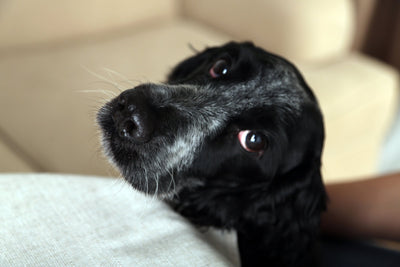Why Do Desexed Dogs Put on Weight?

If you have a dog that you have had spayed or neutered, then you may have noticed them gaining weight. Even if nothing changed in their diet or exercise, suddenly Fido or Fluffy is packing on a few extra pounds. This may have got you thinking: Why do desexed or altered dogs put on weight? Does the actually act of desexing cause weight gain somehow? Is it bad to desex a dog then? Here are some answers to your questions.
The answer is actually pretty simple and comes down to biology. While the actual act of spaying or neutering does not make a dog gain weight, it can cause them to gain weight. How? A paper written by Dr. Debra L. Zoran, DVM, PhD for the Department of Small Animal Clinical Sciences, College of Veterinary Medicine and Biomedical Sciences at Texas A&M University in 2010 explains that:
“Changes in sex hormones following neutering seem to influence development of obesity by direct effects on the brain centers affecting satiety and metabolism (eg, the hypothalamus and others), and indirectly by affecting cell metabolism and hormonal regulators of food (eg, ghrelin and leptin).”
When a dog is desexed, they stop creating the hormones estradiol and testosterone. These “sex hormones” encourage dogs to roam (to seek a mate) and generally keep them more active. In addition, desexing also changes levels of the hormone leptin. When leptin is heightened, dogs not only feel hungrier, but their bodies also store more fat. Insulin is also affected by the removal of the sex hormones. All of these changes lead to a drop in metabolism, which can cause weight gain, even if nothing in their diet or exercise regime has changed.
Interestingly, another research group, Sandra L. Lefebvre 1, Mingyin Yang, Mansen Wang, Denise A. Elliott, Preston R. Buff, and Elizabeth M. Lund, published a paper in The Journal of the American Veterinary Medical Association that found that neither the age at which the dog was desexed or its gender had any connection to obesity risk. Instead, what they found was that for the first two years post-operation, dogs were at higher risk of gaining weight.
How To Limit Risk of Desexed Dogs Putting on Weight
We know that extra weight can cause a lot of health problems for our beloved dogs—from strains on joints to heart issues—it can even shorten their lifespan! While this may make you think twice about desexing your dog, the good news is that there is a relatively simple way to negate the obesity risk after desexing, so you can still get all the positives of an altered dog (reduced tendencies to wander, reduced aggression, reduced risk in cancer in female dogs, reduced marking, etc.): Lower food and up the exercise!
Most researchers have found that desexed dogs need between 75-80% of what they were eating prior to being spayed or neutered. Dog breed and the amount of exercise they get will affect this number. Dr. Zoran found: “A 30% decrease in energy intake was required to prevent post-spay weight gain in female Beagles. In contrast, in a separate study of working dogs, increasing exercise after neutering also resulted in maintenance of ideal body condition compared with dogs that were not neutered.”
The healthiest option, of course, is to lower food and also up the exercise, to keep your dog in good shape with toned muscles. But if you are not able to up your dog’s exercise, you may have to lower his food intake even more, at least for those first two years, to keep him or her at a healthy weight.
Remember to check your dog’s body against a dog body condition score chart often, so you know if you need to decrease/increase food or decrease/increase physical activity.
Desexing can have a lot of health benefits and make your dog a better housemate. If you aren’t planning on breeding, it can definitely make life easier! While weight gain leading to obesity is a risk with spaying or neutering, thankfully it’s quite easy to prevent by just lowering their food amount and upping their exercise. Doing this will help keep your dog slim, healthy and fit, so you can enjoy many years together.








